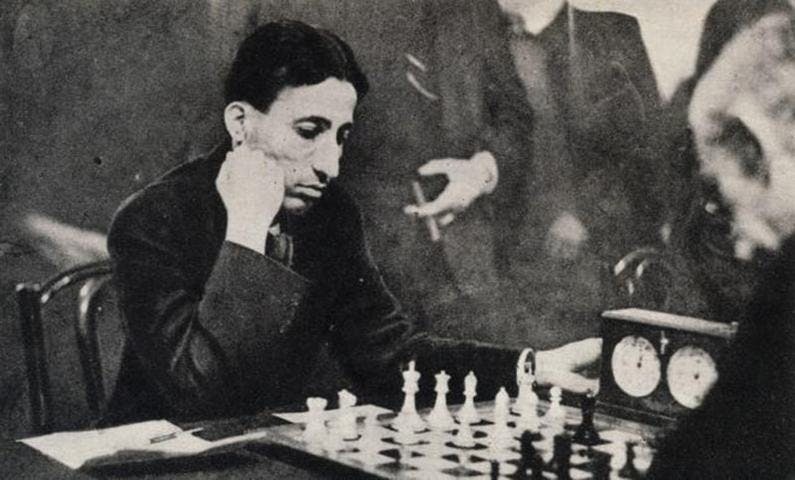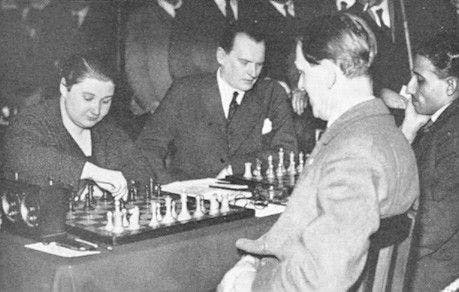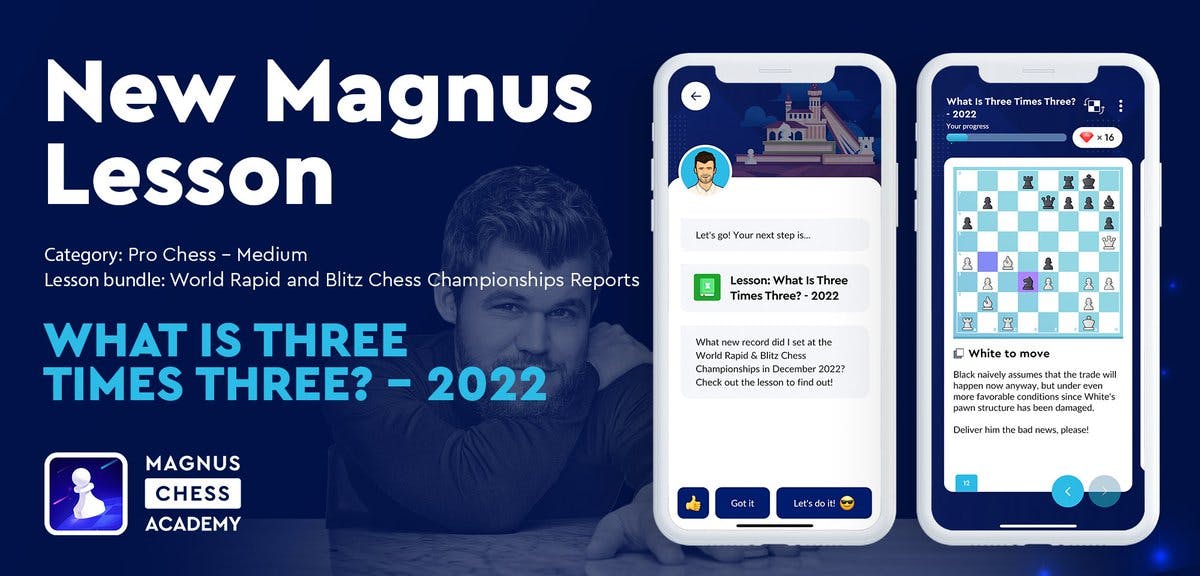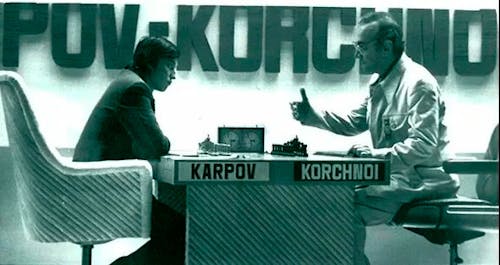Are you sure you want to delete your account?
(This will permanently delete all of your data - purchases, game scores, ratings, etc)
Change your username
Your current username is: guest
Change your account email address
Your current account email is:
Redeem your Fampay code here!
Use your Fampay code to get access to the Play Magnus Plus Membership!

Do Undiscovered Chess Geniuses Exist?
Alekhine was entertaining himself by watching amateurs play chess at a café. One of them approached him and challenged the World Champion to a game. Alexander agreed and offered his partner rook odds.
- But why? You don’t even know me! – mumbled the outraged stranger.
- Exactly! – replied Alekhine with a big smile on his face.
Back in the day, I watched a Hearthstone card review by Adrian Koy, aka Lifecoach, a former poker pro from Germany who had become a professional collectible card game player and streamer. He made a point that the poker industry worked as a PR machine and created an illusion that such guys as Phil Ivey or Daniel Negreanu were indeed the best players in the world. According to Adrian, there are quite a few mysterious strangers who play online and make more money than the guys who are in the limelight. The idea is that it is allegedly easier for them to find "fish"/“customers” for high-stakes games because the latter would underestimate their opponents. I have heard of this phenomenon from many other sources as well.
One of the most popular examples of this kind that comes to mind is Dan Bilzerian. There are mixed opinions on whether his claims about his poker earnings are true.
Since I am not an expert in this field, I can’t comment on whether Adrian Koy's statement is fully valid or not. Nevertheless, it seemed interesting and worthy of further research to me. What if there are some mysterious heroes who are far ahead of the best players on the Hendon Mob Rankings?
Daniel Negreanu, one of the greatest poker legends of all time, is someone whose opinion on the subject is worth paying attention to!
Similarly, sometimes people wonder whether there is a chance of stumbling upon an obscure chess genius; someone who probably only plays online and avoids competing in regular tournaments yet has a playing strength above everyone else in the world. It sounds like a very appealing story: what if there is some guy who lives secludedly in the basement and studies chess 24/7 in some sort of Rocky Balboa hardcore kind of way? And then we either are not aware of his existence at all or maybe he is crushing everyone online using an anonymous account?
When people ask me about it, my reaction is simple: it would make a great Hollywood movie, but in real life, such a scenario is hardly possible. Top-level chess requires not only studying and playing but also tournament experience. You have to get used to the tension and psychological pressure. Without such a background, the chances of showing up for a serious competitive match and beating the current World Champion are close to zero. Also, of course, most of the secret online handles get revealed at one point or another, and pretty much all of the discovered identities turn out to be strong, titled players. Alternatively, there are plenty of cheaters nowadays who use computer assistance and then come up with all sorts of fairy tales about how hard they allegedly work to beat super GMs online.
The closest to being a true story of this kind is the fate of Mir Sultan Khan. Lacking formal education, hardly knowing the rules of European chess (he was initially taught to play Indian chess), and being a servant of a colonel who brought him to Great Britain, he made quite a name for himself by winning three British Championships in four tries and beating the world’s finest players, including Jose Raul Capablanca.
One of the anecdotes related to the game above is that Sultan Khan, a shatranj player, was not even aware that the queen could move further than one square along the diagonal! Hence he played Qc2, Qb3, and then Qxc2 - only short moves with the queen! What an enormous handicap to offer to the merciless "chess machine"!

Vera Menchik, Alexander Alekhine, Geza Maroczy, and Sultan Khan, London, 1932
Anyway, Sultan Khan's case is rather a rare exception than a rule. Besides, modern chess is considerably more competitive and professional than it used to be a century ago, so the chances of someone quickly rising up the steps of the chess pyramid are considerably lower.
Undiscovered talents are another story. It is quite possible that most of the people who had the talent to become top chess players weren’t even introduced to the game. We will never know until the age when genetic testing will be universally performed in order to help an individual choose the optimal future occupation. But at the current time, this is something limited to science fiction books.
Sultan Khan had become the champion of India at Indian chess, and he learned the rules of our form of chess at a later date. The fact that even under such conditions, he succeeded in becoming champion reveals a genius for chess which is nothing short of extraordinary.
Jose Raul Capablanca
I would like to wrap up the post with a topical chess anecdote attributed to Jose Raul Capablanca:
"I was playing in a tournament in Germany one year when a man approached me. Thinking he just wanted an autograph, I reached for my pen when the man made a startling announcement… ‘I’ve solved chess!’ I sensibly started to back away in case the man was dangerous as well as insane, but the man continued: ‘I’ll bet you 50 marks that if you come back to my hotel room, I can prove it to you.’ Well, 50 marks were 50 marks, so I humored the fellow and accompanied him to his room. Back in the room, we sat down at his chess board. ‘I’ve worked it all out, White mates in 12, no matter what.’ I played with Black perhaps a bit incautiously, but I found, to my horror, that White’s pieces coordinated very strangely and that I was going to be mated on the 12th move! I tried again, and I played a completely different opening that couldn’t possibly result in such a position. Still, after a series of very queer-looking moves, once again, I found my king surrounded, with checkmate to fall on the 12th move. I asked the man to wait while I ran downstairs and fetched Emmanuel Lasker, who was the World Champion before me. He was extremely skeptical but agreed to at least come and play. Along the way, we snagged Alekhine, who was then the World Champion, and the three of us ran back up to the room.
Lasker took no chances but played as cautiously as could be, yet after a bizarre, pointless-looking series of maneuvers, he found himself hemmed in a mating net from which there was no escape. Alekhine tried his hand, too, but all to no avail.
It was awful! Here we were, the finest players in the world, men who had devoted our very lives to the game, and it was all over! The tournaments, the matches, everything - chess had been solved, White wins."
About this time, Capablanca’s friends would break in, saying, “Wait a minute, I never heard anything about all this! What happened?”
“Why, we killed him, of course!”

Are you curious how far you are from beating Magnus Carlsen, Wesley So, Judit Polgar, and other famous chess legends? Check out the brand-new Magnus Chess Academy app and find out! Even if you don't succeed right away, you will discover plenty of efficient training tools that will help you take your chess skill to the next level.

